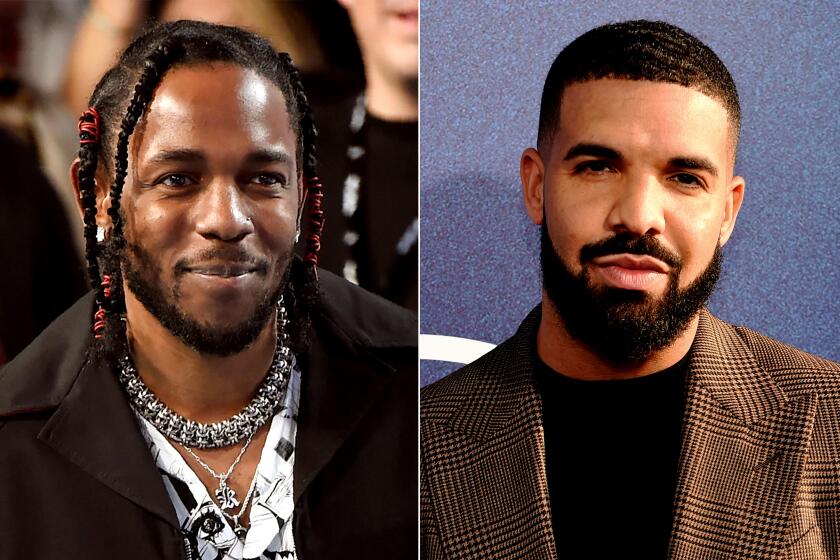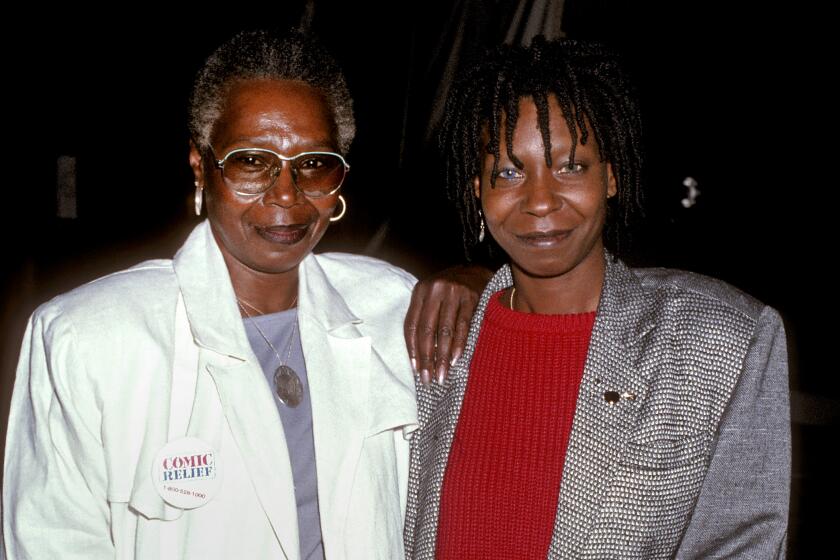The Best of 2007
Before he gunned down eight people in an Omaha mall Dec. 5, Robert A. Hawkins left a note explaining his actions: His life had been ruined by a break-up and job loss, but now at least he was going to be famous.
Except, of course, that he isn’t.
The horror of a young man committing murder to achieve notoriety is twisted into grim irony by the fact that his story was soon lost in the frothing, sucking news churn, replaced by the Colorado shootings. If it hadn’t been that, it would have been a break in the Stacy Peterson case, a political scandal or, more likely, a celebrity caught without panties or busting out of rehab. Hawkins inevitably will be returned to the anonymity he found so impossible to bear.
With a media metabolism jacked up to thyroid-busting levels, fame has become so ubiquitous and fleeting, it barely exists. One minute you’re on the cover of Rolling Stone and People and InStyle and Newsweek and all the morning shows, the next you’re yesterday’s blog. It all comes down to simple math. Ratings, readership, website hits, box office returns -- everything and everyone needs to open big, stay high or, baby, you’re bumped.
Sickeningly, even mass murderers live in the age of the opening weekend.
For years, the film studios have promulgated the big opening weekend mentality, pinning all their hopes and dreams, not to mention publicity dollars, on enormous numbers for two or three days. Too fearful to hope for slow and thoughtful audience growth, the marketing of most films follows the Attention Deficit Disorder plan: open big, hang on for a week or two, then vanish from screen and thought and conversation. (Which explains why so many Oscar hopefuls are opening mere weeks before year’s end.)
Not surprisingly, that mentality has trickled down to television, where shows that don’t post well in the first three weeks risk getting yanked midseason. CBS paid Katie Couric big bucks to guarantee a bump in ratings; analysts wrote her off as a flop mere weeks after her debut. Hit shows such as “House” and “Heroes” cycle in a cadre of new cast members just when viewers are able to remember the names of the old ones.
Where have you gone, Joe DiMaggio, or for that matter Sacha Baron Cohen? The face of Borat appeared Mao-like on seemingly every flat surface available for photo transference last year. Now he has vanished from the cultural conversation, taking all his much-mimicked idiosyncratic syntax with him. Name one Borat phrase. I dare you. Ditto other pop culture flash points such as “Kid Nation” child abuse allegations, LonelyGirl15, Daniel Craig as James Bond, Stephen Colbert as a presidential candidate, the plot twists on “Lost” and all those Wisteria Lane ladies.
Strangely enough, penguins, as in “March of the Penguins,” “Madagascar” and “Happy Feet,” seem to be hanging on. Perhaps they could offer a few tips to former “American Idol” darling Sanjaya, who was reduced to a has-been mere moments, it would seem, after the pinnacle of his fame.
Even book publishers eschew the slow build of a book tour in favor of the blitzkrieg of national publicity. Should a film or show or book actually buck the trend and find success through word of mouth -- Sara Gruen’s novel “Water for Elephants,” for example -- the media fall all over themselves reporting it as news, inevitably taking things meteoric until the fireball flames out.
Meanwhile, we get President Bush, at a dinner honoring Steve Martin, referring to Vice President Dick Cheney as a “wild and crazy guy.” Those were the days, weren’t they? Before cable, before the Internet, when shows such as “Saturday Night Live” still had teeth, when you could coin a phrase, create a character and expect it to hang around for a bit.
Lost amid shiny objects
We are a nation obsessed with fame. But as the poets have told us time and again, too much handling will destroy any object of desire. Fame, at least in the old-fashioned, stands-the-test-of-time sense, is now almost impossible to achieve and may in fact no longer exist. Andy Warhol once observed that fame was going so cheap everyone would have their 15 minutes. In today’s world, Warhol himself probably couldn’t have hung on for 15 seconds.
Part of this comes down to technology. Since Henry Ford created the assembly line, mass production has inevitably led to increased consumption and the desire for the next new thing. Who keeps a car for 10 years anymore? Technology has finally caught up with information; airport-sized 20-theater complexes, television with hundreds of stations, the infinite Internet clamor for our attention. Why wait for the news in tomorrow’s paper when you can get it tonight on TV? Why wait for tonight on TV when you can get it right this minute online?
Those waiting for a saturation point should bring lots of snacks, because it isn’t happening soon. The entertainment industry may be entering a writers strike-induced flash freeze, but that’s only because the players are locked in a division over the spoils of new media.
There’s so much entertainment available, keeping track of it becomes a part-time job; our TiVo queues stack up and overflow like all those unread Sunday newspapers. People, places and things fly by, holding the spotlight for a few moments, then vanish into the cultural blur.
Fame, on the other hand, requires a little time and a belief in differentiated value, neither of which our multitasking, knockoff-adoring society has much truck with these days. Who has time to figure out if somebody is actually worth considering or talking about for any length of time? We’re due back at work in five minutes. We consume people, events, places and things just as we consume our super-sized burgers and quarts of iced latte -- in our cars or standing over the sink while texting our friends.
And that’s the parents as well as the children. Forget the 1960s, this is the age of true youth culture, when everyone dresses like they’re on their way to science class and any downtime is instantly filled with iPods, iBooks, iPhones and what happens in the final Harry Potter book. Interestingly, J.K. Rowling was just named celebrity of the year by Entertainment Weekly. Not to deride Rowling, who has accomplished what few could, but she is a writer of young-adult fiction. So what does it say that she is our entertainer of the year? That we are all young adults at heart? On the other hand, she writes pretty lengthy books, a ray of hope in an abbreviated world, and Rowling is famous in the standard, Oxford Dictionary sense -- for accomplishment.
She’s not the only one, of course. It is still possible for quality to stick, as people such as C.S. Lewis, Helen Mirren and David Chase can attest -- although the final episode of “The Sopranos” was a perfect example of what a pie-eating contest pop culture has become. Reactions to the infamous black screen were up on the Internet moments after the credits rolled, while critics, including this one, wrote reviews in 20 minutes in order to make the paper the next day, in part because we all have to keep up with the Internet.
More often, however, in place of fame we have celebrity. Paris Hilton, Nicole Richie, Lindsay Lohan, Britney Spears stalk the spotlight like so many ill-fated fireflies. The light may kill them in the end, but that’s nothing, apparently, compared with their fear of the silent dark.
With the pros keeping all the paparazzi and websites buzzing, there’s no way an ordinary, average, remarkable person can hold the headlines for long. Only George Clooney seems to be able to hang onto fame the old-fashioned way, by being handsome and charming. Even pals Brad and Angelina -- even Tom Cruise -- need the extra shot of progeny from far-away places or wearing designer duds to keep people’s attention.
In a world beset by war and famine and global warming, the state of fame may not be our most pressing concern. And yet the diminishment of one is, in this case, the diminishment of all. War, famine and global warming too must compete with the Etch-a-Sketch tendencies of the public attention span. In most news organizations, a good celebrity story can bump a report out of Iraq from front page real estate. On the other hand, global warming has ridden to public awareness on the shoulders of famous people, including Al Gore who, with his Emmy, Oscar and Nobel, forms the almost perfect nexus of politics and pop culture.
Fame is, or at least has been, a social sorting mechanism, like power and cultural significance, a way to flag the things we should pay attention to, the people who might be worth watching. Without it we might actually miss someone or something important.
Like those penguins. I mean, who doesn’t love those penguins?
--
More to Read
The biggest entertainment stories
Get our big stories about Hollywood, film, television, music, arts, culture and more right in your inbox as soon as they publish.
You may occasionally receive promotional content from the Los Angeles Times.







